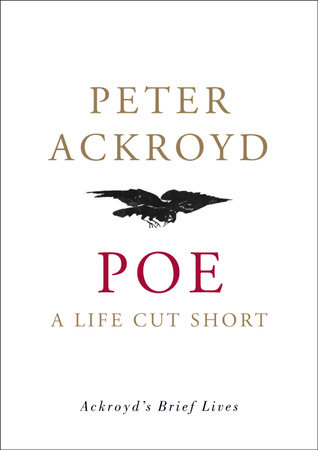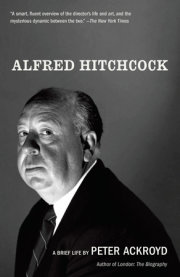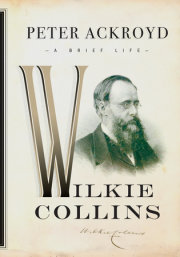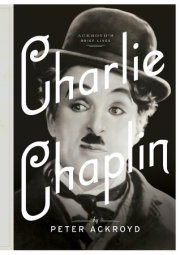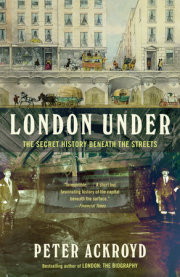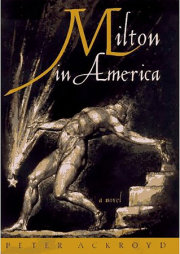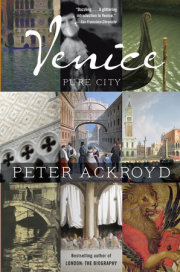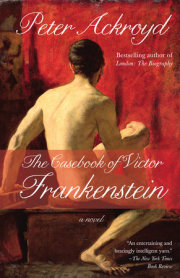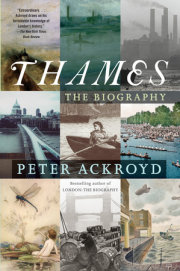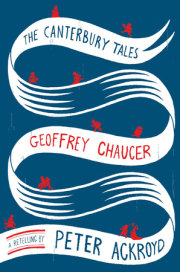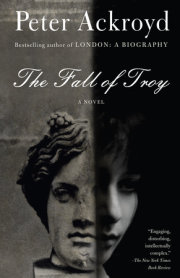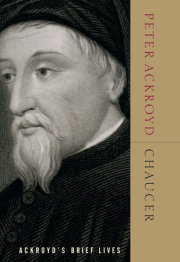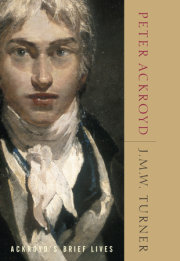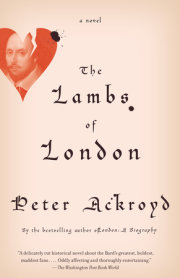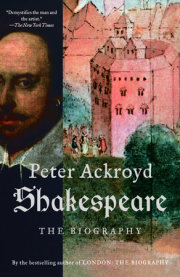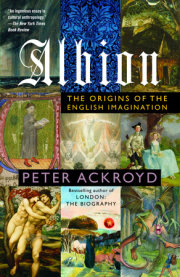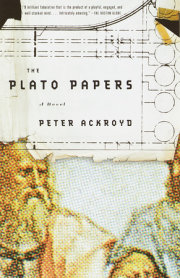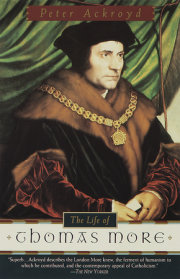CHAPTER ONE
The Victim
On the evening of 26 September 1849, Edgar Allan Poe stopped in the office of a physician in Richmond, Virginia--John Carter--and obtained a palliative for the fever that had beset him. Then he went across the road and had supper in a local inn. He took with him, by mistake, Dr. Carter's malacca sword cane.
Poe was about to embark on the steamboat to Baltimore. This was the first stop on his way to New York, where he had business to transact. The boat was to leave at four o'clock on the following morning, for a journey that would last approximately twenty-five hours. He seemed to the friends who saw him off to be cheerful and sober. He expected to be away from Richmond for no more than two weeks. Yet he forgot to take his luggage with him. This was the last verifiable sighting of Poe until he was found dying in a tavern six days later.
...
He arrived in Baltimore on Friday, 28 September. He lingered in this city, instead of making his way to Philadelphia, the next stop on his way to New York, and there are accounts of his drinking. He may have been drinking to ward off the effects of the fever. He may have feared a precipitate heart attack. He had been told, by the doctors in Richmond, that his next seizure would prove fatal.
It is possible that he then travelled by train to Philadelphia. He visited some friends in that city, and became drunk or ill. On the following morning, in his bewildered state, he declared that he was going on to New York. But in fact, by accident or design, he returned to Baltimore. There are unsubstantiated reports that he then tried to return once more to Philadelphia but was found "insensible" on the train. The conductor took him back to Baltimore. The truth is lost. Everything is in a mist.
Neilson Poe, his cousin, later wrote to Poe's mother-in-law and unofficial guardian, Maria Clemm, that "at what time he arrived in the city [Baltimore], where he spent the time he was here, or under what circumstances, I have been unable to ascertain." Despite much research and speculation, no further light has been thrown upon the matter. He may have been wandering through the streets, or making his unsteady way from tavern to tavern. All that is known for certain is that, on 3 October, a newspaper printer sent a message to Joseph Evans Snodgrass: "There is a gentleman, rather the worse for wear, at Ryan's 4th ward polls, who goes under the cognomen of Edgar A. Poe, and who appears to be in great distress, & he says he is acquainted with you, and I assure you, he is in need of immediate assistance." Snodgrass had been the editor of the Saturday Visiter, to which Poe had contributed. "Ryan's 4th ward polls" refers to a tavern that was being used as a polling place for Congressional elections taking place that day; Ryan was the name of the proprietor of the tavern.
The printer's note was sufficiently serious to summon Snodgrass. He entered the barroom and found Poe sitting, stupefied, with a crowd of "drinking men" around him. His odd clothes caught Snodgrass's attention. He was wearing a tattered straw hat, and a pair of badly fitting trousers. He had a secondhand coat, but no sign of waistcoat or neckcloth. With the possible exception of the straw hat, these were not the clothes with which he had left Richmond. Yet, surprisingly, he still held Dr. Carter's malacca cane. In his inebriated and beleaguered state, it might have seemed to him an instrument of defence.
Snodgrass did not approach him, but ordered a room for him in the same tavern. He was about to send word to Poe's relatives in Baltimore, when two of them coincidentally arrived. One was Poe's cousin Henry Herring, who had come to the tavern on electoral business. He was related to a local politician. Snodgrass recalled that "they declined to take private care of him" on the grounds that he had in the past been abusive in this state of intoxication; instead they advised that Poe be removed to a local hospital. They managed to get him into a carriage, carrying him "as if a corpse," and he was admitted to Washington College Hospital.
The resident physician, John Moran, later reported that Poe remained "unconscious of his condition" until early the following morning. His stupor was then succeeded by "tremor of the limbs" as well as delirium with "constant talking--and vacant converse with spectral and imaginary objects on the walls." Only on the second day after his admission, Friday, 5 October, did he recover his tranquillity. He began to talk, but he was not coherent. He told the doctor that he had a wife in Richmond, which was not true, and that he did not know when he had left that city. The doctor then reassured him that he would soon be in the company of friends, at which point he broke out in an agony of self-reproach at his degradation, protesting that the best thing a friend might do for him was to blow out his (Poe's) brains. Then he fell into a slumber.
On waking he passed into delirium. On the Saturday evening he began to call out "Reynolds," and did so continually until three on the following Sunday morning. "Having become enfeebled from exertion," the doctor wrote, "he became quiet and seemed to rest for a short time, then gently moving his head he said 'Lord Help my poor Soul' and expired." This is the testimony of Dr. Moran, written to Maria Clemm five weeks after the events he related. Despite later embellishments by the doctor it is the closest approximation to the truth now available.
...
What had Poe been doing for the lost days in Baltimore? The most commonly accepted theory is that he was used as a "stooge" for polling purposes, being dressed up in someone else's clothes so that he might vote more than once for a particular candidate. These false voters were held in "coops" or inns, where they were nursed with alcohol. It also transpired that "Reynolds," the name Poe continued to repeat in his final delirium, was the surname of one of the voting officials at Ryan's tavern.
It is a possible explanation but not the only one. It has been suggested, for example, that he had a large amount of money from subscriptions to the Stylus, a magazine that he was preparing, and that as a consequence he was robbed. There are also many explanations for an early death, including delirium tremens and tuberculosis, "lesion of the brain" or a brain tumour, and diabetes. The well is too deep for the truth to be recovered.
A funeral was held on Monday, 8 October, with only four mourners. Among these were Henry Herring and Neilson Poe. The ceremony lasted for no more than three or four minutes. Like his narratives and fables, Poe's own story ends abruptly and inconclusively; it is bedevilled by a mystery that has never been, and probably can never be, resolved.
CHAPTER TWO
The Orphan
Edgar Allan Poe has become the image of the poete maudit, the blasted soul, the wanderer. His fate was heavy, his life all but insupportable. A rain of blows descended on him from the time of his birth. He once said that "to revolutionise, at one effort, the universal world of human thought" it was necessary only "to write and publish a very little book. Its title should be simple--a few plain words--'My Heart Laid Bare.' But--this little book must be true to its title." Poe never wrote such a book, but his life deserved one.
His torment--a mixture of insatiable anxiety and no less helpless longing--began early. His mother had already contracted tuberculosis before his birth, and it may be surmised there was some loss or lack of nourishment in the womb. The perils of a confined space, in which a victim lies panting, play a large part in his fictions. Both his parents, David and Eliza Poe, were also labouring under a heavy weight of anxiety exacerbated by poverty. Circumambient tension affects the unborn child. So the haunted life of Poe began before his birth. "I do believe God gave me a spark of genius," he said a few weeks before his death, "but He quenched it in misery."
He was born on a cold day, 19 January 1809, in a lodging house in Boston. A storm had filled Boston Harbor with icedrifts. In later reports Poe changed the year of his birth, almost at whim, as if he did not wish to look at the event too closely. His parents were both actors, travelling players whose status was just a little higher than that of vagabonds. He may have been named after Mr. Edgar, the manager of the theatrical troupe with which the Poes were associated. Certain of his contemporaries noticed that, in later life, Poe manifested a theatrical or histrionic air. "The world shall be my theatre," he once wrote. "I must either conquer or die."
There is an old theatrical adage that the show must go on. Three weeks after Poe's birth a Boston newspaper wrote that "we congratulate the frequenters of the theatre on the recovery of Mrs. Poe from her recent confinement." She was playing the part of Rosalinda in a play entitled Abaellino the Great Bandit. But the wandering life of the Poes had an immediate effect upon their infant son, since soon after his birth he was dispatched to the care of his paternal grandparents in Baltimore, Maryland, for some months. It was the first of many rejections suffered by Poe. Yet, perhaps in consequence, he venerated his mother. He once wrote in a newspaper article that he was "the son of an actress, had invariably made it his boast, and no earl was ever prouder of his earldom than he of his descent from a woman who, although well born, hesitated not to consecrate to the drama her brief career of genius and of beauty." He was putting the best possible interpretation upon his mother's behaviour.
...
Of course Eliza Poe was not well born at all. She had sailed in 1796 from England to America in the company of her mother, an actress of Covent Garden, in the hope or expectation that there would be greater opportunities for the dramatic arts in the new country. She was only nine at the time of her migration, but she soon became a practised artiste. Within three months of her arrival in the United States, she was performing on stage. There is one extant portrait of her in her early maturity. It shows a pretty if slight young woman, with fashionable ringlets; she has a lively expression, only slightly spoiled by somewhat protuberant eyes. She wears an Empire-line robe and a pert little bonnet. She must have been a competent and pleasing actress, since she gained many plaudits in the newspapers of the time. She was also versatile, sometimes sustaining three roles in the same evening. In the course of her relatively short career she assumed some 201 different parts. One of her fellow players was Mr. Luke Usher, whose name has since come down to posterity.
In 1802, at the age of fifteen, she married a fellow actor, Charles Hopkins, who died three years later. On 14 March 1806, six months after the death of her first husband, the young actress married David Poe in Richmond, Virginia, in what seem to have been hasty circumstances. David Poe had to borrow money for the occasion. He was intended for a legal career, but was diverted from it by theatrical ambitions. They were only partly fulfilled, however, and the newspaper reports suggest that he was no match for his pretty young wife. One magazine decided that he "was never destined for the high walks of drama." He was twenty-two at the time of the marriage, three years older than his wife. But he was already an impetuous and extravagant young man, much given to drinking. Performances were cancelled at short notice because of what the manager called Mr. Poe's "sudden indisposition," a euphemism for total intoxication. It is a matter of debate whether the propensity for heavy drinking, or for alcoholism (which is not the same thing), can be inherited. The only extant letter in David Poe's hand is a desperate plea for money, with the assurance that "nothing but extreme distress would have forc'd me to make this application." It is precisely the kind of letter his son was obliged to write in later years. It might be said that Poe became an echo of his father, as eerie a connection as any in his own fictions.
Henry, the first child of David and Eliza Poe, was born in January 1807. Two years after his birth he was consigned to the care of David Poe's parents, Elizabeth and "General" Poe. The wandering life of the theatrical Poes, travelling up and down the East Coast from New York to Boston, from Baltimore to Philadelphia and Richmond, and back again, had proved too tiring for mother and infant alike.
"General" Poe was not a general at all but a former maker of spinning wheels; at the time of the United States War of Independence he was appointed as Deputy Quartermaster General for the city of Baltimore, and was later promoted to the rank of major. Yet he was an enterprising and successful officer, later earning the commendations of the Marquis de Lafayette. He must also have been successful in the no less challenging role of parent, since in all but name he adopted Henry and he cared for Edgar in the earliest months of his life.
In the summer of 1809 David and Eliza returned to Baltimore for little Edgar. But it was not a happy family reunion. Husband and wife were both tubercular, their condition made infinitely worse by poverty and uncertain livelihood. In December 1810, another child was born, Rosalie, or "Rosie" as she was known, and stretched the resources of the young family still further. There are reports that the two youngest children were placed in the care of an old Welsh woman who "freely administered to them gin and other spirituous liquors, with sometimes laudanum" to render them "strong and healthy." Or, perhaps, simply to keep them quiet.
Then, at some point in the spring or early summer of 1811, David Poe disappeared. He never came back to his wife and family. The Norfolk Herald of 26 July reported that Mrs. Poe was "left alone . . . friendless and unprotected."
In later life, according to a colleague, Edgar Poe "pretended" not to know what had become of his father. There may not have been any pretence involved. The reasons for David Poe's flight are unknown. There were rumours of a quarrel with Eliza, and persistent gossip that Rosalie was not his child. It has even been suggested that he abandoned his family as early as 1810, perhaps before the birth of Rosalie.
Eliza was at the same time slipping into the final stages of her tubercular illness. The infant Edgar must have been acutely aware of the loss of his father and of the fading of his mother. He may not have been able to understand these things, but in these earliest years he was enveloped in an air of menace and fatality. Anxiety was his childhood bedfellow. He would have seen, too, the gradual wasting of her form with the painful spasmodic coughs and the effusion of blood. These images never left him. He resurrects the consumptive form of the beloved female in many of his tales.
Copyright © 2009 by Peter Ackroyd. All rights reserved. No part of this excerpt may be reproduced or reprinted without permission in writing from the publisher.

